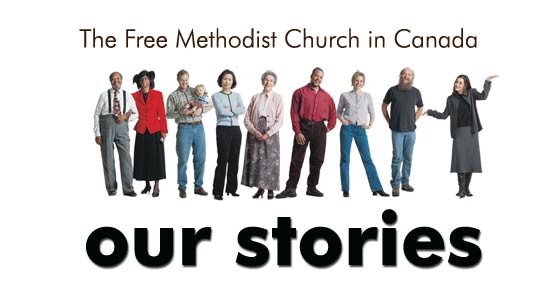The following article has been adapted with permission from the February 2006 Canadian National Christian Foundation (CNCF) monthly e-Newsletter.
One of the simplest ways of supporting ministries and charities while we live is to give gifts of cash or investments. Although this may be an easy way to give your tithe or other gifts, there are definitely efficient and effective ways of accomplishing this; some of which may be new to you. Following are some suggestions about which you may wish to speak with your financial advisor.
Giving Cash Gifts
For the purpose of receiving a tax credit, a donor may make a cash gift of up to 75% of the donor’s annual income. The resulting tax credit may reduce federal and provincial tax by as much as $500 for each $1,000 donation. The tax credit may be used against tax payable in the year of the donation, or in any of the following five years. In the year of death and in the year preceding death, the gift may be up to 100% of the donor’s income. An estate may also apply to recover tax paid in the year preceding death.
Giving Non-Cash Gifts
A public foundation can receive non-cash donations, including shares of both private and public corporations. Gifts of publicly traded shares made to a public foundation result in a significantly better tax credit than would the same gift if made to a private foundation. Gifts of shares of private companies made to private foundations are so legally complex that they rarely make sense; however, the same shares can be given to a public foundation with much less complexity.
When non-cash gifts are given to a public foundation, Canada Revenue Agency (CRA) deems that the donor has disposed of the property at the time of the donation. The donor may have a capital gain on the property if its value at the time of donation exceeds its value at the time the donor acquired it. Normally, 50% of the capital gain must be treated as taxable income, even if the donation was given to a private foundation. However, if publicly traded shares are donated to a public foundation then only 25% of the capital gain will be treated as taxable income.
By way of example, assume a donor (with a marginal tax rate of 50%) has publicly-traded shares with a fair market value of $50,000 and an original cost of $10,000. The donor will have a taxable capital gain of $40,000 upon either the donation or sale of the shares. However, the gain subject to tax will be less if the shares are donated to a public foundation than if the shares are sold and the cash proceeds are donated.
In the case of the sale of the shares, 50% of the capital gain will be taxable to the donor ($20,000*). In the case of donation of the shares to a public foundation, 25% of the capital gain is taxable to the donor ($10,000*). Taxation on the sale therefore at his/her 50% marginal tax rate will cost the donor $10,000*. Taxation on the donation of the shares will cost only $5,000, yielding a savings of $5,000*. The $5,000 tax advantage would not arise if the shares were donated directly to a private foundation.
The Canadian National Christian Foundation as well as The Free Methodist Foundation in Canada are both public foundations that can accept gifts of shares and provide donors with the tax savings as outlined above. For more information about the donation of shares or other planned giving options, please contact the Stewardship Ministries and the Free Methodist Foundation at http://www.fmc-canada.org/ or the Canadian National Christian Foundation at www.cncf.ca.
If you are looking for a Christian financial advisor, you can contact the Canadian National Christian Foundation. Through their Advisors with Purpose program they can connect you with an advisor in your area.
*actual amount depends upon tax bracket and province of residence.
Joanne Bell, Stewardship Director for The Free Methodist Church in Canada.


No comments:
Post a Comment